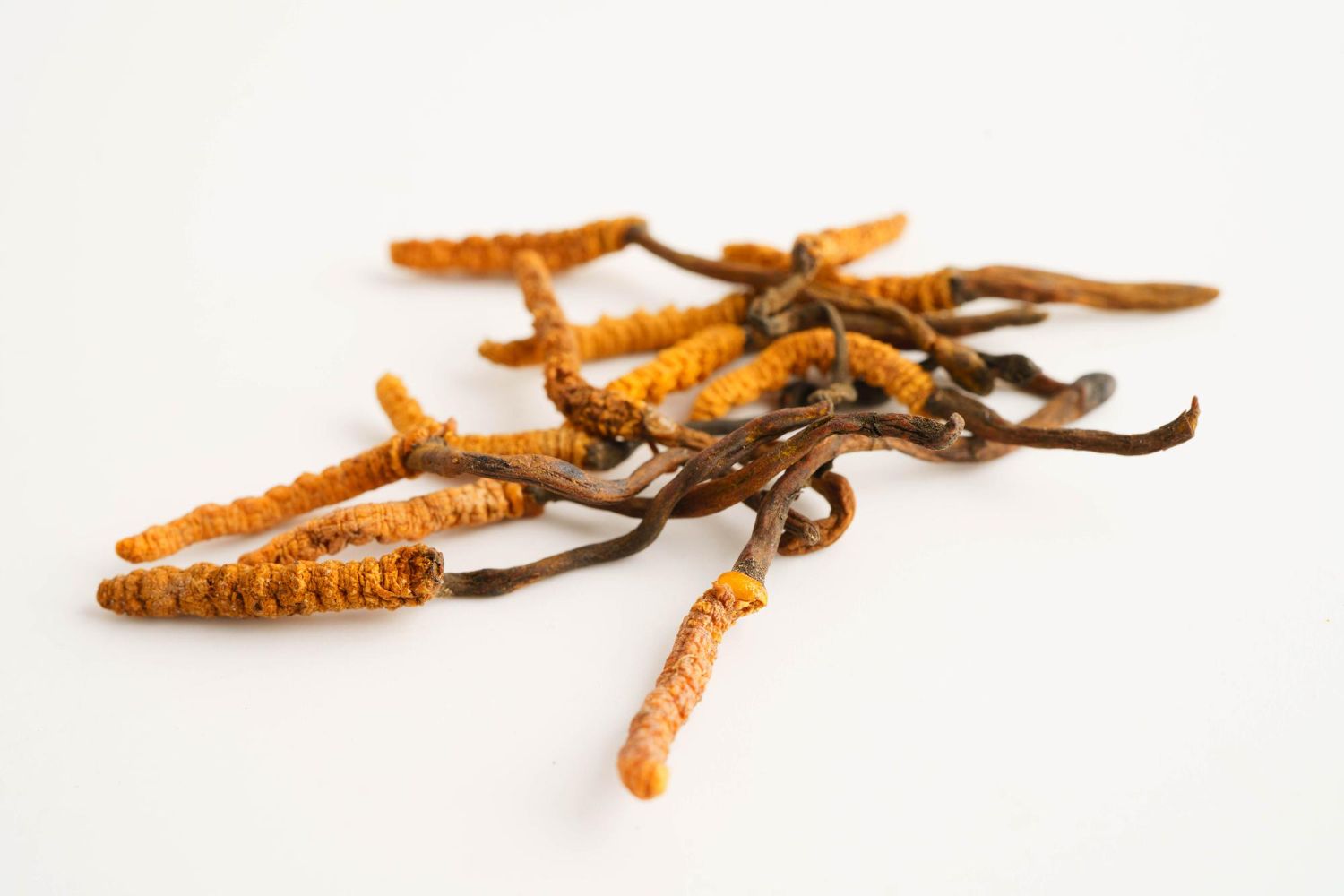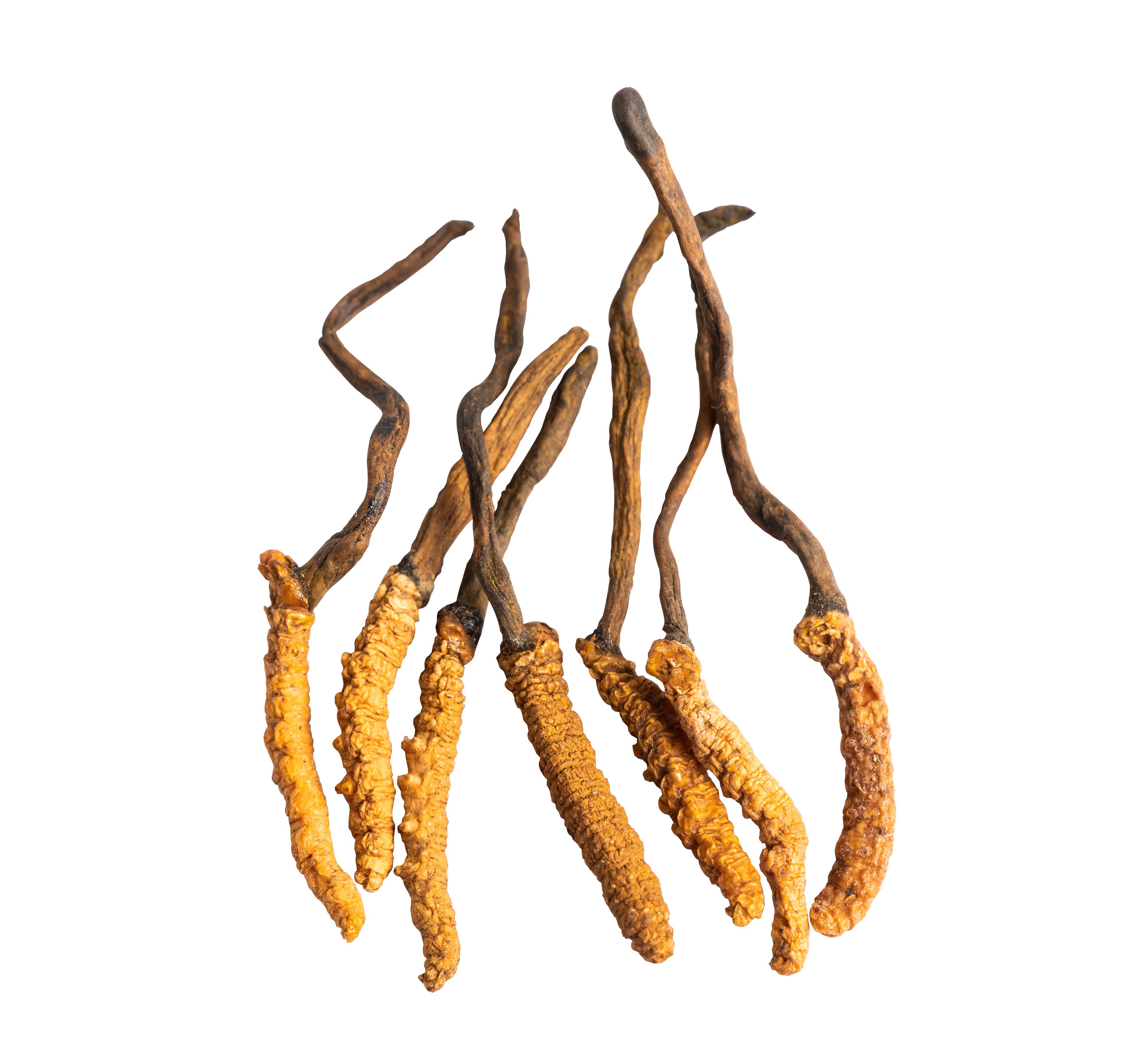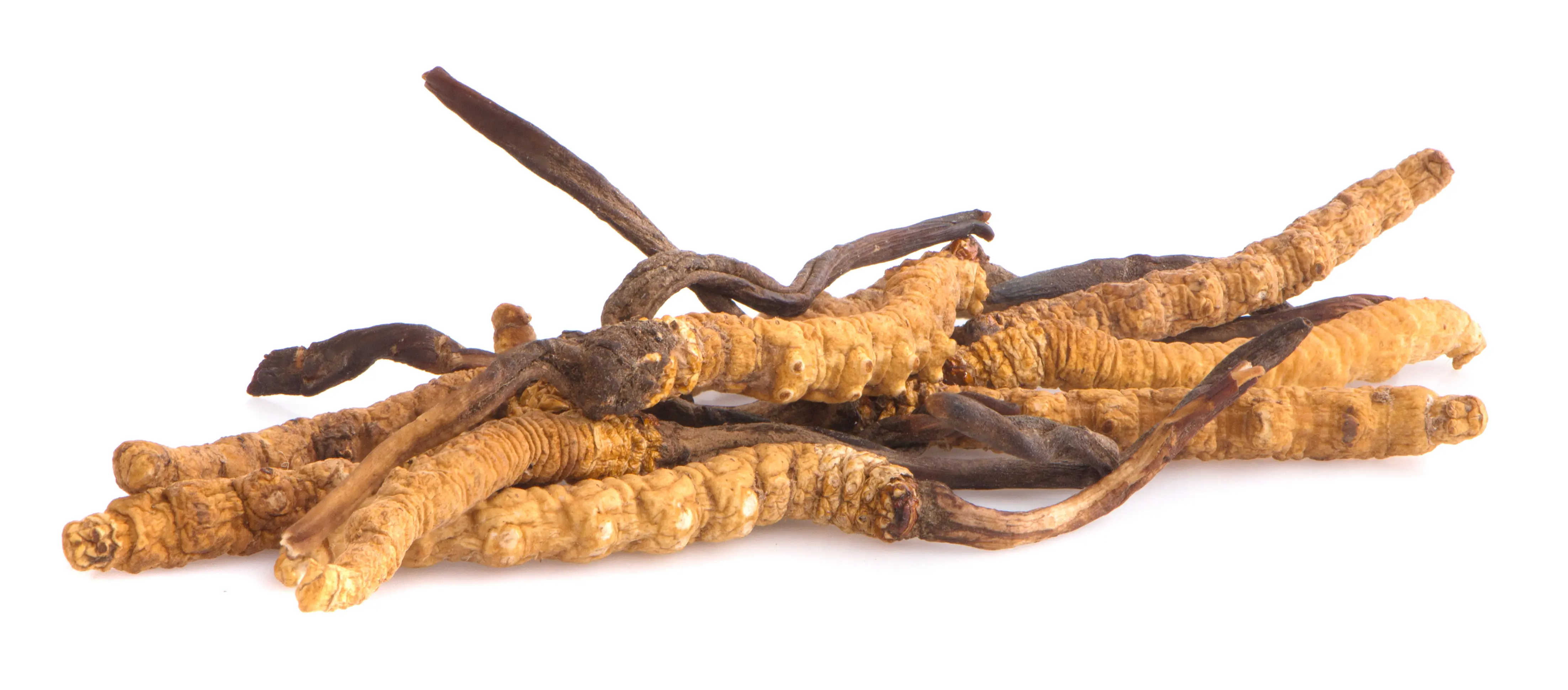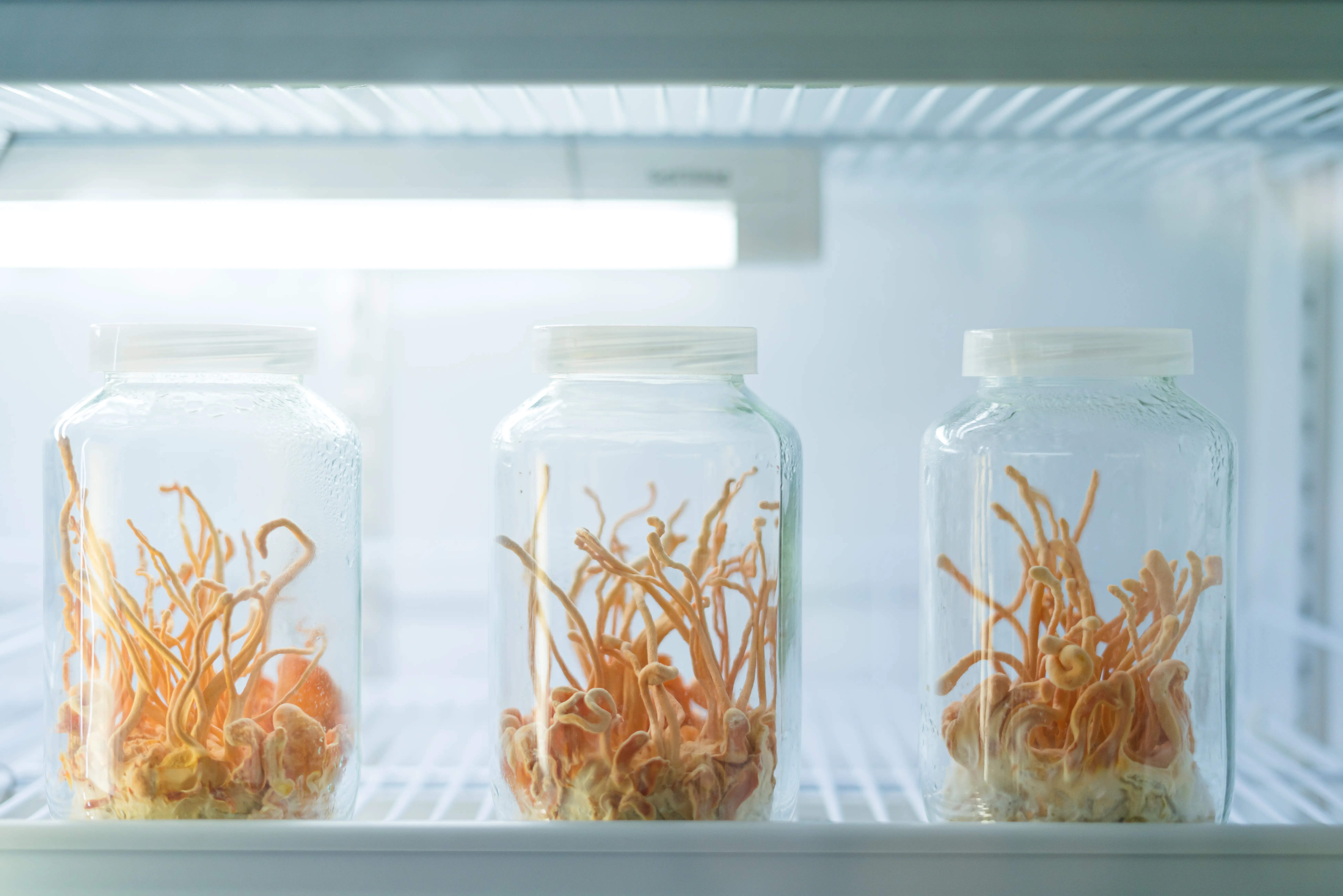Hormone Compass Body: Where Cordyceps Potentially Involves
Hormones control a lot: they influence our mood, metabolism and even the immune system. It is all the more exciting that Cordyceps sinensis is increasingly being discussed in research as a possible regulator of these complex hormonal processes.
Initial indications suggest that ingredients such as cordycepin, polysaccharides and sterols could interfere with hormonal control circuits: directly, for example by stimulating the production of estrogen or testosterone, or indirectly through anti-inflammatory and stress-regulating effects.
The following sections highlight how cordyceps may potentially affect various hormonal axes in the body - from testosterone synthesis to stress hormone cortisol to the female cycle.
What is Cordyceps?
Cordyceps sinensis - also known as Chinese caterpillar fungus - is a traditional vital mushroom from the Tibetan highlands. In TCM it has been considered a tonic for energy and vitality for centuries. Today it is mostly used as an extract or capsule – with exciting ingredients and modern potential.
Cordyceps & Testosterone: Natural potential for energy and vitality?
In traditional Chinese medicine, Cordyceps has long been considered a herbal supporter of male vitality. Its possible effect on testosterone production makes the vital mushroom interesting to this day.
The thesis: Cordyceps could stimulate the body's own hormone formation - via the luteinizing hormone (LH), which controls testosterone production in the testes. In addition, the mushroom could improve oxygen supply and support endurance - particularly relevant for Athletes.
But how sound are these statements?
Cordyceps is associated with a possible stimulation of the luteinizing hormone (LH), which stimulates testosterone production in the testes.
Cordyceps and male hormone formation: What studies show
- A from 2011 examined the effect of Cordyceps sinensis on testosterone levels in healthy young men. Over eight weeks, participants received either 2.4 g of Cordyceps powder or a placebo. The result: There was no significant difference between the groups. Neither testosterone levels nor strength values significantly improved through intake - at least under these conditions.













_1500x2250_150_RGB-2.webp)


